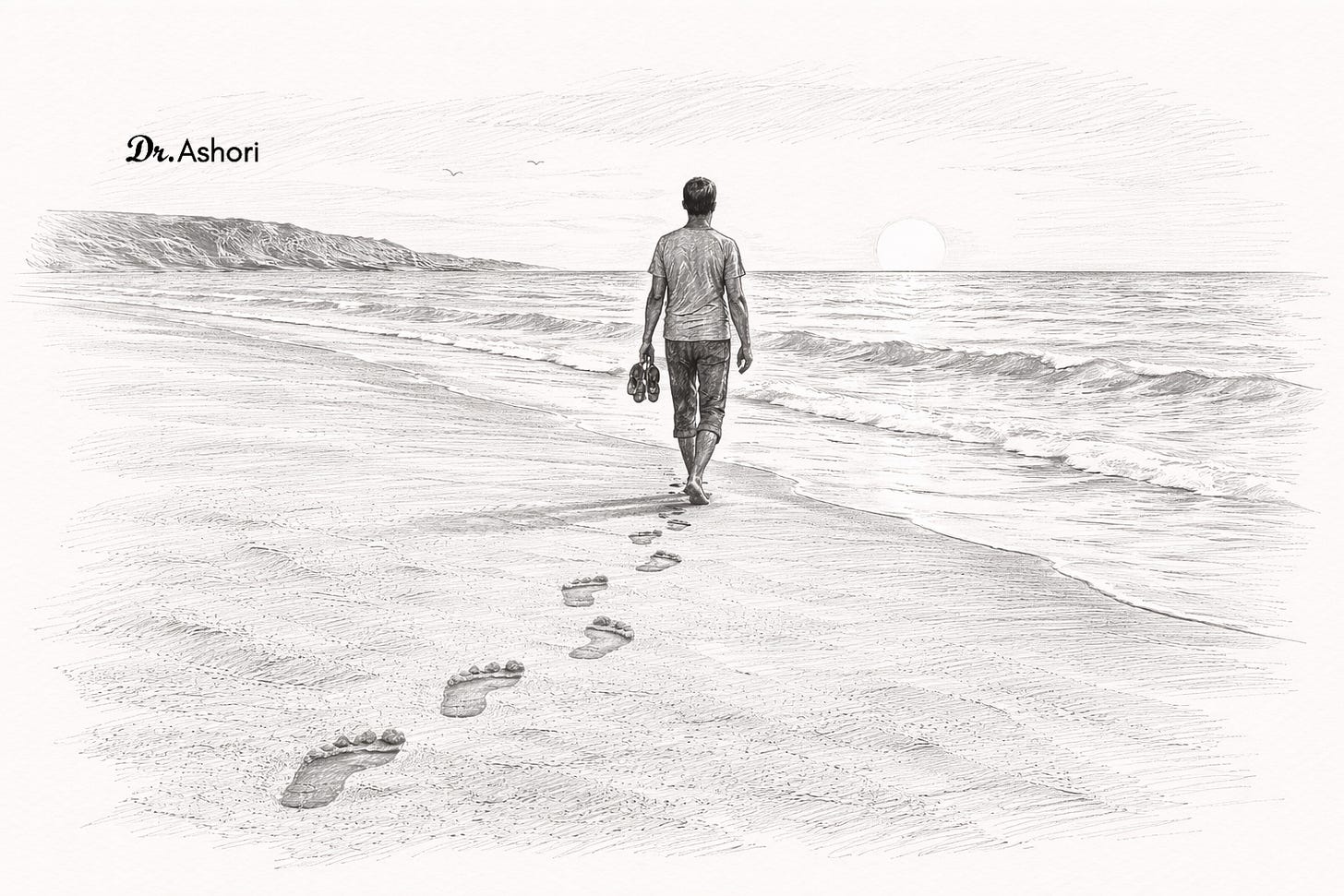Healthy Aging Isn't About Longevity
You can age well, live well, and feel great without trend chasing, restrictive diets, or expensive biohacking.
UPDATED: February 8th, 2026
Welcome to the Healthy Aging Newsletter, a free publication translating trustworthy medical research into simple habits to age well, free of chronic disease. I’m Dr. Ashori, a family medicine doctor turned health coach.
Most people think of aging as something that happens to them. But the truth is, how you age is in your control, more than you might think. While some behaviors and actions are exciting at first, they often don’t last and their perceived failure leaves an unpleasant void.
Measuring Biomarkers
The healthcare industry is busy at work coming up with new biomarkers weekly. Whether it’s a new imaging study, an AI algorithm applied to an older study, new blood tests, whole body scans, or even tissue biopsies.
Biomarkers are as abundant as apps. And just like most apps, they offer little value to the person who wants to live a healthier life. From $99 to $4,999, you can get detailed, invalidated studies done by direct-to-consumer labs.
Even Tests Have Risks
No test is risk-free. Of course, each of us defines risk differently.
For myself, anticipating the results of a colonoscopy or endoscopy or whole body MRI would be nerve racking and the results shared with me would make me feel less solid when it comes to my overall health.
This isn’t to argue against biomarkers which are among the most wonderful tools we’ve developed in modern medicine. But knowing when to use them is more important than ever.
Health & Individual Quality of Life
Mr. L. asked me if he had to stop his weekly whiskey nights with friends or the occasional cigar he smokes twice a year. These are real life decisions people are facing culturally and socially.
I can’t say yes or no because it’s a personal decision. Instead, I can help him think through it.
Health is as individual as a car preference. Some prefer practicality and others want speed. One person wants to make it to the 500K mile club and another wants a new car every 24 months. What they both have in common is that they want to enjoy the car but are willing to make some trade-offs.
Most of us, even those with chronic diseases, can enjoy health. Our daily decisions and our mindset and perspectives are huge determinants of perceived health.
If my chronic pain is controlled with opioids that leave me bedridden, constipated, and foggy brained, that may not be my ideal definition of being healthy or being pain free.
Maybe I’d prefer to suffer through slightly more pain but regain my social functionality.
What I Do in My Practice
In my practice, I help adults take charge of their health and help them with healthy aging with the goal of preventing chronic diseases.
We focus on habits, actions, choices, and decisions and not quick fixes or extreme interventions. Degrading the quality of life too much makes life not worth living.
It is possible to take lots of supplements daily, take multiple prescription medications, monitor all vital signs, get blood tests weekly, imaging studies monthly, and visit with a doctor quarterly for the longest and healthiest life possible. But this comes at a major cost. One that most abandon quickly.
My practice is about quality of life. Because most of us want to live a life that has a healthy balance of productivity, activity, longevity, contentedness, and relatively misery free.
This is often achieved by helping my clients understand which decisions are likely to get them to their ideal goals through health coaching and which may be of little value.
How to Age Well
I don’t have a universal solution for aging well. But I look back at my 2 decades as a primary care doctor and the many patients I have in my private, cash-based practice now and here is what I’ve learned.
#1. Accepting Aging
The beauty of life is that it’s finite.
With time our body is less able to repair damages, less capable of gaining strength, and becomes more frail. Not diseased, just frail.
But as the body slows we get to enjoy a peace and tranquility we couldn’t enjoy in our 20s.
2. Daily Choices
Every day we are faced with choices that require a compass for decision making.
If we have a deep understanding of what health and living mean to us then it’s easier to put those decisions into perspective.
Not every decision has to be optimized and we don’t have to make perfect decisions every day. But the cumulative results of daily choices have a profound overall effect on how well we live our lives and how we feel.
3. Metabolic Health
From the thyroid system to insulin to inflammatory pathways, our cardiometabolic health is shaped by the choices we make.
Most of us need to make relatively few major choices to enjoy a healthy, productive life. Very few biomarkers are necessary to know if we’re headed in the right direction and the process should be enjoyable and less of a job.
Better metabolic health means a better mental state, sustained energy, better sleep, and feeling better overall.
Check out this article on the 6 pillars of healthy aging:
4. Activity & Mobility
In your 30s, it’s easy to dismiss the physical body because it’s not until your 40s when you start noticing the first signs of trouble; brain fog, stubborn weight, low energy.
Getting a small, daily routine of movement will pay off and make you feel better. It doesn’t need to be complex.
It’s a choice. Not always an easy one. You’ll have to actively forgo something else to spend that time engaging in movement, exercise, activity, stability, and mobility
5. Nutrition & Digestion
Food is abundant and not all of us have the same food drive.
Genetically, hormonally, and environmentally some of us have developed with a food drive that’s as sensitive as our need to take in another breath. Others have hardly any food drive and for them controlling meal portion, meal timing, and nutrient content comes incredibly easily.
6. Mindset & Mental Health
The mindset we develop around health, disease, healing, and treatments is critical. In the modern healthcare system where things happen very rapidly, profitably, where we hear a lot about people of dying of cancer at a young age, fear mongering can get a little out of control.
A healthy mindset helps us develop strong emotional coping mechanisms and develop mental health that’s more resilient.
Disclaimer:
Dr. Mohammad Ashori is a U.S.-trained family medicine physician turned health coach. The content shared here is for education and general guidance only. It is not personal medical advice, diagnosis, or treatment, and it does not create a doctor–patient relationship. Humans are complicated and context matters. Always talk with your own healthcare team before making medical decisions, changing medications, or ignoring symptoms. This information is to help you add more depth to those conversations.




